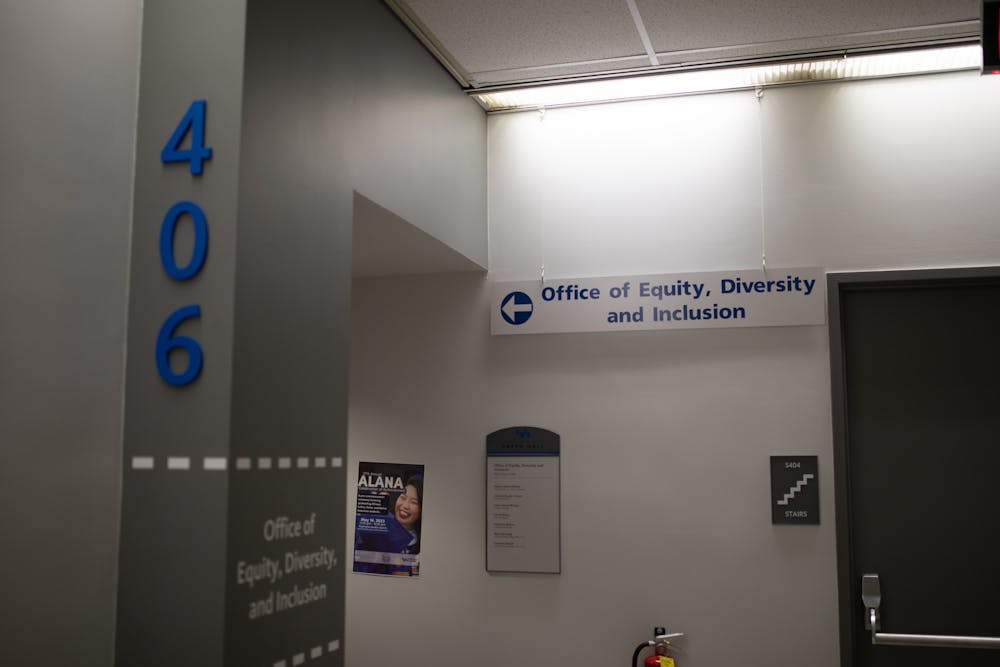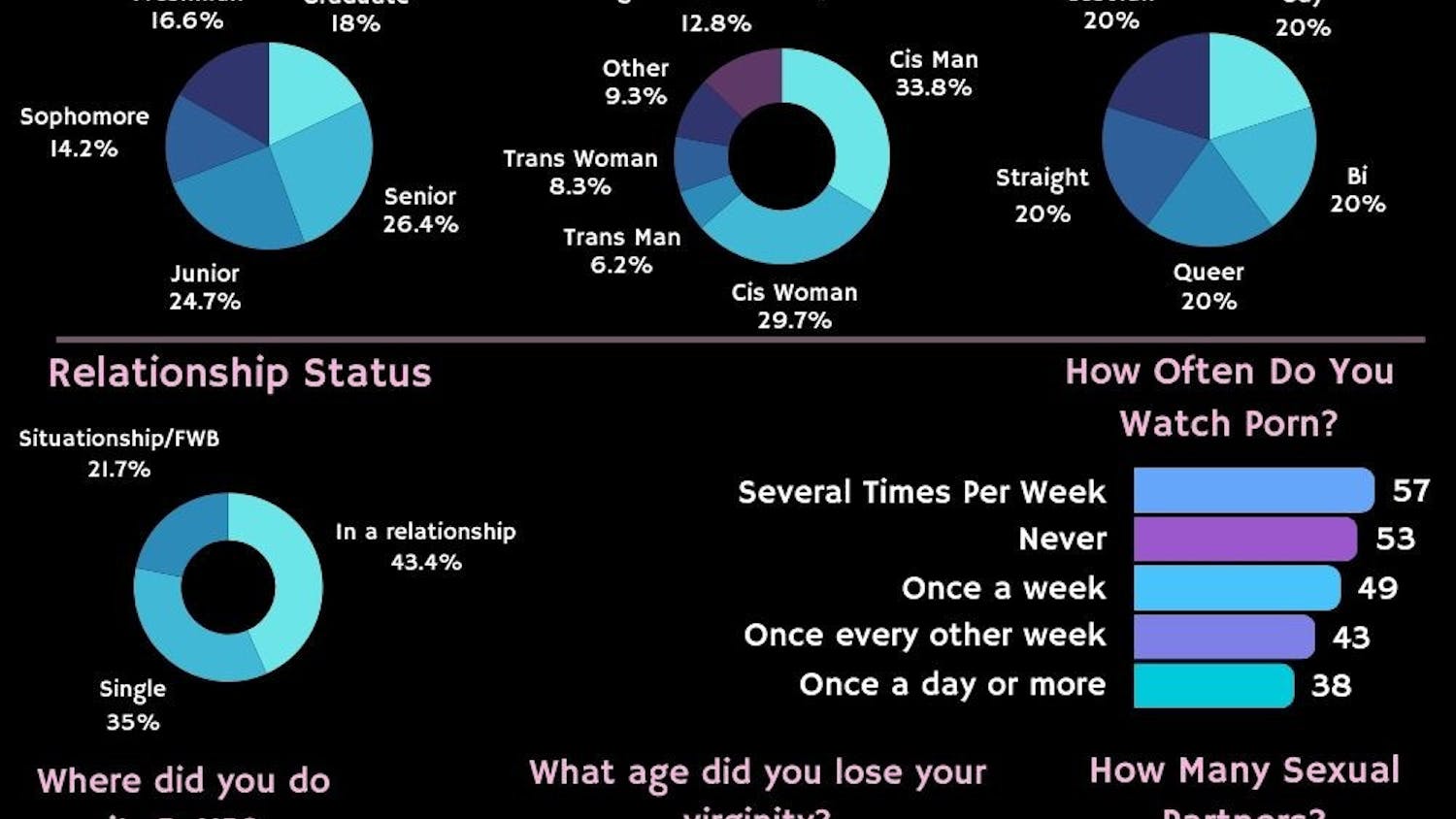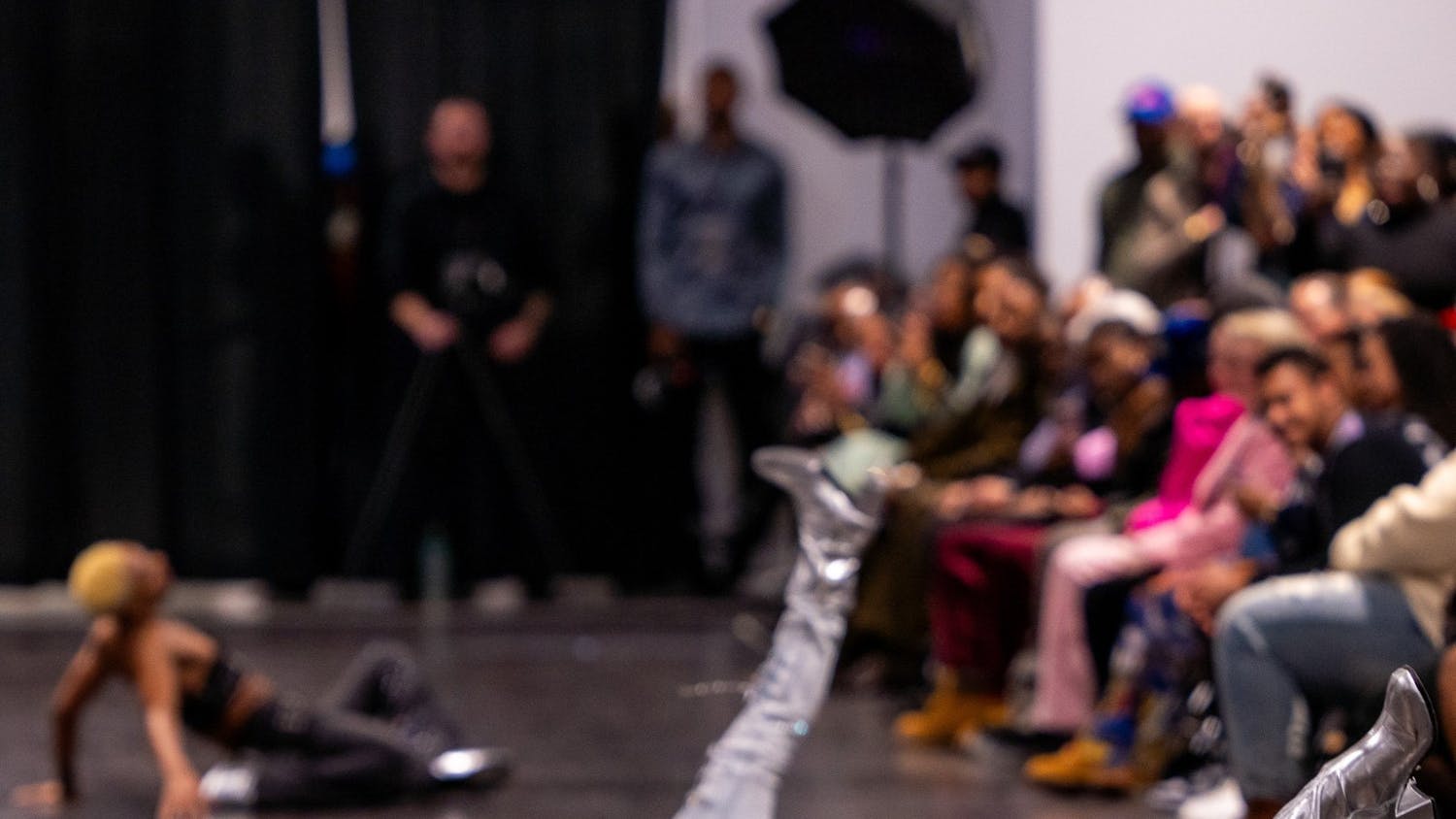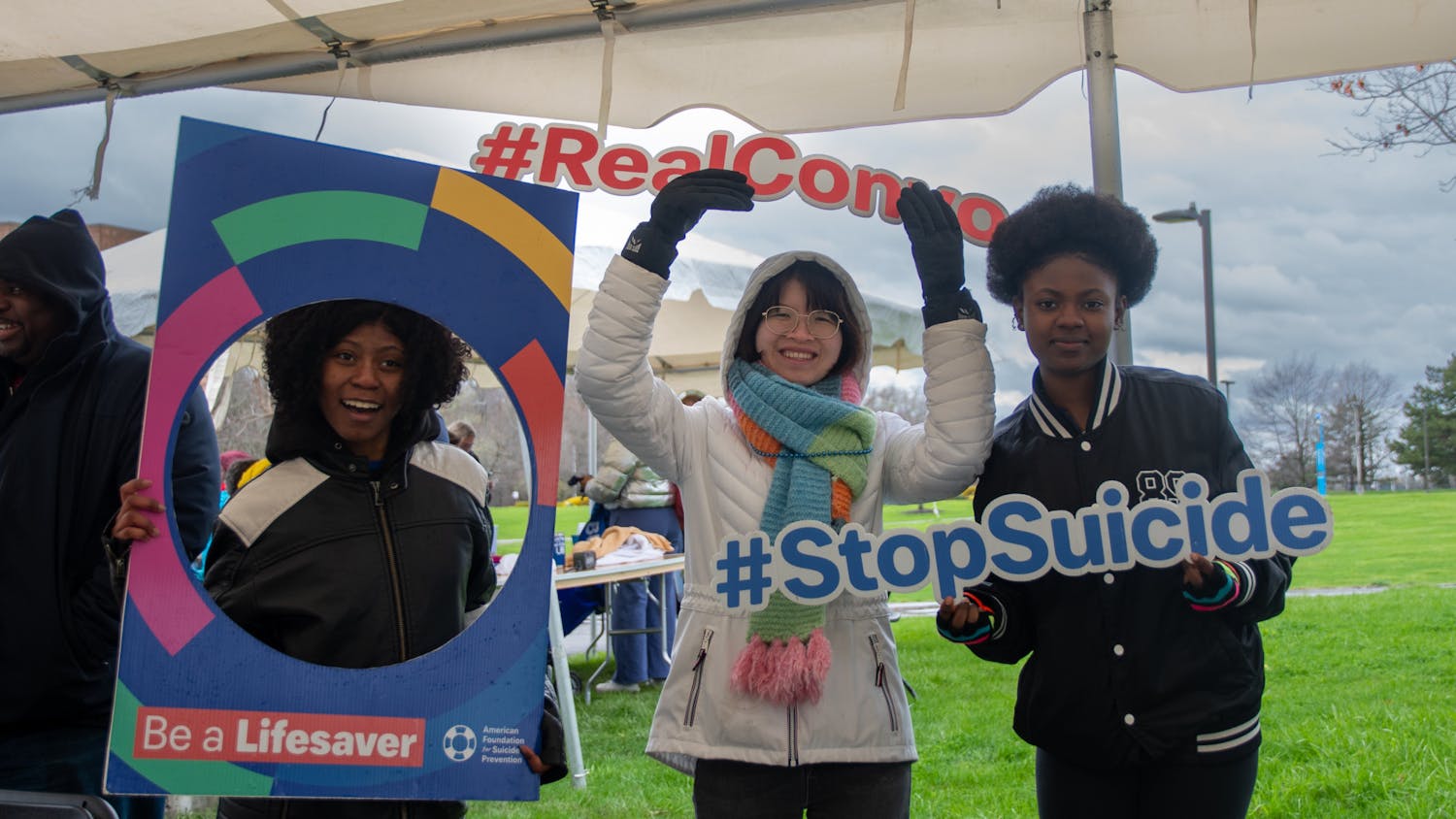The spring 2022 UB Custom National College Health Assessment survey, a nationally-known survey that collects data on students’ habits and behavior, asked the question, “Have you ever experienced sexual violence, such as sexual harrassment, relationship abuse… or threat of abuse, stalking, non-consensual sharing of intimate images, or non-consensual sexual contact?”
The results? 9.8% of cisgender men, 33.6% of cisgender women and 50% of transgender and gender nonconforming students reported yes.
Aaron Maracle and Jessica Mencia, hosts for UB Health Promotion’s “How to Help a Sexual Assault Survivor” event, used those statistics to kick off their presentation in Student Union 235 last Thursday.
Maracle, a violence-prevention specialist, and Mencia, a social work graduate student and student assistant, presented in-person and online attendees with resources for students who either have experienced sexual assault or are trying to help someone who has.
Maracle and Mencia then moved on to the definition of affirmative consent. UB adopted the practice before 2014, with SUNY following suit in 2014. It’s now a standard at all college universities across New York State since 2015.
The definition of “affirmative consent” is “a knowing, voluntary and mutual decision among all participants to engage in sexual activity. Consent can be given by words or actions… Silence or lack of resistance, in and of itself, does not demonstrate consent. The definition of consent does not vary based upon a participant’s sex, sexual orientation, gender identity, or gender expression.”
Maracle added that a lack of understanding of consent is overwhelmingly not the cause of sexual assault.
“It’s not that people don’t understand this [consent], it’s that they fully understand it and just don’t care,” he said.
Sexual assault is a crime about power and control. Maracle clarified that rape and sex are not the same because one is a crime and one is consensual. He emphasized the importance of giving power and control back to survivors by listing off guiding principles for doing so.
Helping the survivor how they want to be helped is crucial. Maracle said they are the experts in their own experience and how support for whatever decisions they decide to make is needed.
Other ways to help are to create a safe environment for the survivor by either holding the perpetrator responsible or keeping them away from the perpetrator.
There should be no qualifications on helping survivors. For instance, people should not say, “I’ll only help you if you leave this person.” This is another way of taking control over the situation away from the survivor.
Maracle said if anything at all, believe the survivor. Only 2-8% of sexual assault reports are false, and being part of a survivor’s support system makes all the difference.
In the second half of the event, Maracle displayed various on-campus resources for students who have survived sexual assault.
Most faculty and staff at UB have an obligation to report when a student tells them they experienced sexual assault. UB has a campus advocate, Alicia Wattie, who is not affiliated with UB, who can provide help and keep experiences anonymous.
Wattie is a contracted employee through crisis services, and therefore doesn’t have any responsibility to the university. Her only job is to help survivors how they want to be helped. Students in need can call or text (716) 796-4399 on Monday, Wednesday and Friday from 8 a.m. to 4 p.m. or Tuesday and Thursday from 11 a.m. to 7 p.m.
The Office of Equity, Diversity and Inclusion (EDI) offers information intake forms for students who choose to remain anonymous.
“They [survivors] may not be ready to put their name to what happened to them, but they might still want to document that somewhere. They can leave as much or as little information as they want or contact information or not,” Maracle said. “At the end of it, they get a record of the report number… They have that report then they can go back and attach their name to it.”
EDI also offers academic accommodations for survivors. If someone needs to take a test at a later date, EDI will contact a professor and keep the student’s experience anonymous. The test cannot be more difficult than the original test. EDI also can find a different section of a class for a student whose perpetrator is in the same class.
Healing from sexual assault takes different amounts of time for every person, Maracle said at the end of the event.
“Talking about sexual assault isn’t easy,” he said. “But the things worth doing aren’t always easy.”
The “How to Help a Sexual Assault Survivor” workshop will also be offered both in-person and via Zoom on Thursday, March 30 at 3:30 p.m. in SU 235 and Wednesday, April 12 at 4 p.m. in SU 210. For more resources and reporting options, go to EDI’s website.
Katie Skoog is a features editor and can be reached at katie.skoog@ubspectrum.com





